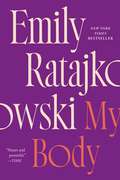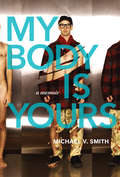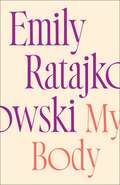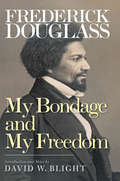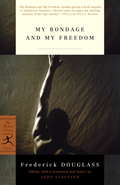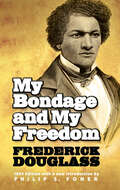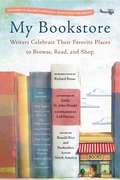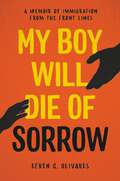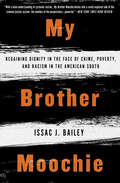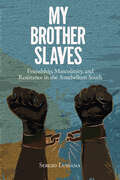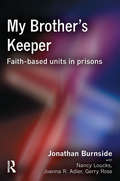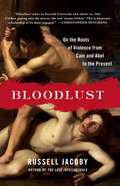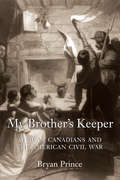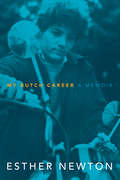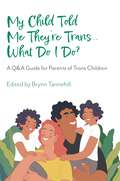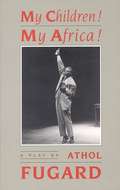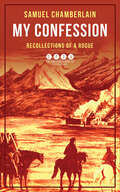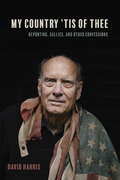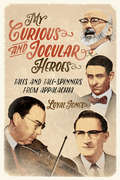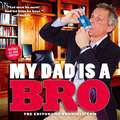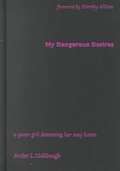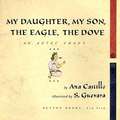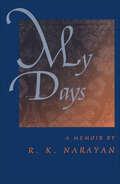- Table View
- List View
My Body
by Emily RatajkowskiA deeply honest investigation of what it means to be a woman and a commodity from Emily Ratajkowski, the archetypal, multi-hyphenate celebrity of our time. <p><p> Emily Ratajkowski is an acclaimed model and actress, an engaged political progressive, a formidable entrepreneur, a global social media phenomenon, and now, a writer. Rocketing to world fame at age twenty-one, Ratajkowski sparked both praise and furor with the provocative display of her body as an unapologetic statement of feminist empowerment. The subsequent evolution in her thinking about our culture’s commodification of women is the subject of this book. My Body is a profoundly personal exploration of feminism, sexuality, and power, of men's treatment of women and women's rationalizations for accepting that treatment. These essays chronicle moments from Ratajkowski’s life while investigating the culture’s fetishization of girls and female beauty, its obsession with and contempt for women’s sexuality, the perverse dynamics of the fashion and film industries, and the gray area between consent and abuse. <p><p> Nuanced, fierce, and incisive, My Body marks the debut of a writer brimming with courage and intelligence. <P><P><B>A New York Times Best Seller</b>
My Body Is Yours
by Michael V. SmithMichael V. Smith is a multi-talented force of nature: a novelist, poet, improv comic, filmmaker, drag queen, performance artist, and occasional clown. In this, his first work of nonfiction, Michael traces his early years as an inadequate male--a fey kid growing up in a small town amid a blue-collar family; a sissy; an insecure teenager desperate to disappear; and an obsessive writer-performer, drawn to compulsions of alcohol, sex, reading, spending, work, and art as many means to cope and heal.Drawing on his work as an artist whose work focuses on our preconceived notions about the body, this disarming and intriguing memoir questions what it means to be human. Michael asks: How can we know what a man is? How might understanding gender as metaphor be a tool for a deeper understanding of identity? In coming to terms with his past failures at masculinity, Michael offers a new way of thinking about breaking out of gender norms, and breaking free of a hurtful past.Michael V. Smith won the inaugural Dayne Ogilvie Prize for Emerging LGBT Writers from the Writers Trust of Canada for his first novel, Cumberland. He's since published two poetry books and a second novel, Progress. He teaches creative writing in the faculty of creative and critical studies at University of British Columbia's Okanagan campus.
My Body: Emily Ratajkowski's deeply honest and personal exploration of what it means to be a woman today
by Emily RatajkowskiA deeply honest investigation of what it means to be a woman and a commodity from Emily Ratajkowski, the archetypal, multi-hyphenate celebrity of our time._______________'This is the book for every woman trying to place their body on the map of consumption vs control, and every woman who wants to better understand her impulses. It left me much changed' - Lena Dunham'I read these pages, breathless with recognition, and the thrill of reading a new voice telling it like it is' - Dani Shapiro'Emily Ratajkowski's first essay collection needs to be read by everyone [...] both page-turning and moving as hell' - Amy Schumer'A slow, complicated indictment of a profession and the people who propel it [...] it will deliver a more nuanced and introspective rendering of her interior than those who come to it with those surface interests might expect' - Vogue'Ratajkowski brings nuanced insight to questions about empowerment versus commodification of women's bodies and sexuality. Blending cultural criticism and personal stories, My Body is smart and powerful' - Time Magazine'Raw, nuanced and beautifully written. A moving and enlightening experience to join a woman openly exploring such deep parts of her physical self via the written word. A truly impressive debut' - Emma Gannon_______________Emily Ratajkowski is an acclaimed model and actress, an engaged political progressive, a formidable entrepreneur, a global social media phenomenon, and now, a writer. Rocketing to world fame at age twenty-one, Ratajkowski sparked both praise and furor with the provocative display of her body as an unapologetic statement of feminist empowerment. The subsequent evolution in her thinking about our culture's commodification of women is the subject of this book.My Body is a profoundly personal exploration of feminism, sexuality, and power, of men's treatment of women and women's rationalizations for accepting that treatment. These essays chronicle moments from Ratajkowski's life while investigating the culture's fetishization of girls and female beauty, its obsession with and contempt for women's sexuality, the perverse dynamics of the fashion and film industries, and the grey area between consent and abuse.Nuanced, unflinching, and incisive, My Body marks the debut of a fierce writer brimming with courage and intelligence.
My Bondage and My Freedom
by Frederick Douglass David W. BlightBorn into slavery in 1818, Frederick Douglass escaped to freedom and became a passionate advocate for abolition and social change and the foremost spokesperson for the nation’s enslaved African American population in the years preceding the Civil War. My Bondage and My Freedom is Douglass’s masterful recounting of his remarkable life and a fiery condemnation of a political and social system that would reduce people to property and keep an entire race in chains. This classic is revisited with a new introduction and annotations by celebrated Douglass scholar David W. Blight. Blight situates the book within the politics of the 1850s and illuminates how My Bondage represents Douglass as a mature, confident, powerful writer who crafted some of the most unforgettable metaphors of slavery and freedom—indeed of basic human universal aspirations for freedom—anywhere in the English language.
My Bondage and My Freedom
by Frederick DouglassDouglass (1817-1895) recounts his escape from slavery and life afterwards, and more generally describes the experience of slaves in antebellum Maryland. The complete 1855 edition is augmented with an introduction by Bill E. Lawson (philosophy, Michigan State U. ) and appendices of speeches and letters. Annotation c. Book News, Inc. , Portland, OR (booknews. com)
My Bondage and My Freedom: The Givens Collection (African American)
by Frederick Douglass"I have never placed my opposition to slavery on a basis so narrow as my own enslavement, but rather upon the indestructible and unchangeable laws of human nature, every one of which is perpetually and flagrantly violated by the slave system." -- Frederick DouglassBorn and brought up in slavery, Frederick Douglass (1818-1895) experienced the horrors of bondage but gained freedom and world renown as a lecturer, editor, and one of the most important men behind the American abolitionist movement. This book is the deeply moving story of his life -- as a slave, and as a free man.Douglass wrote three autobiographies, of which the 1855 edition is the most detailed on his life as a slave. In it, readers are not spared the fullest and most graphic descriptions of the cruelty of slavery. Douglass describes his life on a Maryland plantation: the excitement and danger of teaching himself to read and write, his demoralization under a cruel master, and his daring escape.In the second part of his tale, Douglass, now a fugitive, settles in Massachusetts and joins the anti-slavery movement. He recounts his travels to the British Isles and his first taste of freedom without prejudice, and his return to America to work as spokesman for his oppressed people. In addition to recording his sufferings and his protests, Douglass also provides a keen analysis of the effects of slavery on its victims as well as on society at large.
My Bookstore: Writers Celebrate Their Favorite Places to Browse, Read, and Shop
by Richard Russo Emily St. John Mandel Leif Parsons Ronald RiceIn My Bookstore our favorite writers-from Elin Hilderbrand, to John Grisham, to Dave Eggers-express their adoration and admiration for their favorite bookstores and booksellers. The relationship between a writer and her local bookstore can last for years or even decades. Often it is the author's local store that supported her during the early days of her career and that works tirelessly to introduce her work to new readers. But authors are also readers and customers, just like us. For them, as for most of us, bookstores serve as the anchor for our communities, the place that introduces us to new ideas (and new neighbors), and that sets our children on the path to becoming lifelong readers and lovers of books. Brimming with original, deeply moving, funny, and exceedingly well-crafted tributes to bookstores, from Longfellow Books in Portland, Maine (Ron Currie, Jr.) to Powells City of Books in Portland, Oregon (Chuck Palahniuk) and everywhere in between, My Bookstore is a joyful celebration of our bricks-and-mortar stores and a clarion call to readers everywhere at a time when the value and importance of these stores should be shouted from the rooftops.
My Boy Will Die of Sorrow: A Memoir of Immigration From the Front Lines
by Efrén C. OlivaresINTERNATIONAL LATINO BOOK AWARD WINNER - The Raul Yzaguirre Best Political/Current Affairs Book This deeply personal perspective from a human rights lawyer—whose work on the front lines of the fight against family separations in South Texas intertwines with his own story of immigrating to the United States at thirteen—reframes the United States' history as a nation of immigrants but also a nation against immigrants. In the summer of 2018, Efrén C. Olivares found himself representing hundreds of immigrant families when Zero Tolerance separated thousands of children from their parents at the U.S.-Mexico border. Twenty-five years earlier, he had been separated from his own father for several years when he migrated to the U.S. to work. Their family was eventually reunited in Texas, where Efrén and his brother went to high school and learned a new language and culture. By sharing these gripping family separation stories alongside his own, Olivares gives voice to immigrants who have been punished and silenced for seeking safety and opportunity. Through him we meet Mario and his daughter Oralia, Viviana and her son Sandro, Patricia and her son Alessandro, and many others. We see how the principles that ostensibly bind the U.S. together fall apart at its borders.My Boy Will Die of Sorrow reflects on the immigrant experience then and now, on what separations do to families, and how the act of separation itself adds another layer to the immigrant identity. Our concern for fellow human beings who live at the margins of our society—at the border, literally and figuratively—is shaped by how we view ourselves in relation both to our fellow citizens and to immigrants. He discusses not only law and immigration policy in accessible terms, but also makes the case for how this hostility is nothing new: children were put in cages when coming through Ellis Island, and Japanese Americans were forcibly separated from their families and interned during WWII. By examining his personal story and the stories of the families he represents side by side, Olivares meaningfully engages readers with their assumptions about what nationhood means in America and challenges us to question our own empathy and compassion.
My Brother Moochie: Regaining Dignity in the Midst of Crime, Poverty, and Racism in the American South
by Issac J. BaileyA rare first-person account that combines a journalist’s skilled reporting with the raw emotion of a younger brother’s heartfelt testimony of what his family endured after his eldest brother killed a man and was sentenced to life in prison. At the age of nine, Issac J. Bailey saw his hero, his eldest brother, taken away in handcuffs, not to return from prison for thirty-two years. Bailey tells the story of their relationship and of his experience living in a family suffering from guilt and shame. Drawing on sociological research as well as his expertise as a journalist, he seeks to answer the crucial question of why Moochie and many other young black men—including half of the ten boys in his own family—end up in the criminal justice system. What role do poverty, race, and faith play? What effect does living in the South, in the Bible Belt, have? And why is their experience understood as an acceptable trope for black men, while white people who commit crimes are never seen in this generalized way? My Brother Moochie provides a wide-ranging yet intensely intimate view of crime and incarceration in the United States, and the devastating effects on the incarcerated, their loved ones, their victims, and society as a whole. It also offers hope for families caught in the incarceration trap: though the Bailey family’s lows have included prison and bearing the responsibility for multiple deaths, their highs have included Harvard University, the White House, and a renewed sense of pride and understanding that presents a path forward.
My Brother Slaves: Friendship, Masculinity, and Resistance in the Antebellum South (New Directions In Southern History Ser.)
by Sergio LussanaTrapped in a world of brutal physical punishment and unremitting, back-breaking labor, Frederick Douglass mused that it was the friendships he shared with other enslaved men that carried him through his darkest days. In this pioneering study, Sergio A. L
My Brother's Keeper
by Joanna R. Adler Jonathan Burnside Nancy Loucks Gerry RoseTen years ago there were no faith-based units in prisons outside South America. Today, they are spreading all over the world, including the United States, Europe and the Commonwealth. My Brother's Keeper is the first major study of a global phenomenon. Exploring the roots of faith-based units in South America, it explains why the Prison Service of England and Wales set up the first Christian-based unit in the western world in 1997 - and its rapid expansion. It also explains how, at exactly the same time, the United States introduced Christian-based units - and why they were complimented by interfaith and multifaith initiatives. At the heart of My Brother's Keeper is an interior account of life inside four Christian-based prison units in England. It draws on the findings of a detailed evaluation conducted by the authors for the Home Office, Prison Service and Kainos Community between 2000 and 2001, including an updated reconviction study. It is an authoritative account of an innovative programme. Its analysis of what works and what doesn't in faith-based units around the world makes My Brother's Keeper a valuable roadmap for all who care about improving prison conditions. It presents a vision of justice that is not just concerned with building more prisons but with rebuilding more prisoners. It argues that by making prisons more human and punishment more humane, faith-based units can be of value - and keep faith in prisons.
My Brother's Keeper, My Brother's Killer: On the Roots of Violence
by Russell JacobyTHROUGHOUT HISTORY AND ACROSS CULTURES, the most common form of violence is that between family members and neighbors or kindred communities--in civil wars writ large and small. From assault to genocide, from assassination to massacre, violence usually emerges from inside the fold. You have more to fear from a spouse, an ex-spouse, or a coworker than you do from someone you don't know. In this brilliant polemic, Russell Jacoby argues that violence erupts most often, and most savagely, between those of us most closely related. An Indian nationalist assassinated Mohandas Gandhi, "the father" of India. An Egyptian Muslim assassinated Anwar Sadat, the president of Egypt and a recipient of the Nobel Peace Prize. An Israeli Jew assassinated Yitzhak Rabin, the Israeli prime minister and similarly a recipient of the Nobel Peace Prize. Genocide most often involves kindred groups. The German Christians of the 1930s were so closely intertwined with German Jews that a yellow star was required to tell the groups apart. Serbs and Muslims in Bosnia, like the Hutu and Tutsi in Rwanda, are often indistinguishable even to one another. This idea contradicts both common sense and the collective wisdom of teachers and preachers, who declaim that we fear--and sometimes should fear--the "other," the dangerous stranger. Citizens and scholars alike believe that enemies lurk in the street and beyond, where we confront a "clash of civilizations" with foreigners who challenge our way of life. Jacoby offers a more unsettling truth: it is not so much the unknown that threatens us, but the known. We attack our brothers--our kin, our acquaintances, our neighbors--with far greater regularity and venom than we attack outsiders. Weaving together the biblical story of Cain and Abel, Freud's "narcissism of minor differences," insights on anti-Semitism and misogyny, as well as fresh analysesof "civil" bloodbaths from the St. Bartholomew's Day Massacre in the sixteenth century to genocide and terrorism in our own time, Jacoby turns history inside out to offer a provocative new understanding of violent confrontation over the centuries. "In thinking about the bad, we reach for the good," he says in his Introduction. This passionate, counter-intuitive account affords us an unprecedented insight into the roots of violence.
My Brother's Keeper: African Canadians and the American Civil War
by Bryan PrinceThe story of African Canadians who fled slavery in the United States but returned to enlist in the Union forces during the American Civil War. On New Year’s Eve in 1862, blacks from across British North America joined in spirit with their American fellows in silent vigils to await the enactment of President Lincoln’s Emancipation Proclamation. The terms declared that slaves who were held in the districts that were in rebellion would be free and that blacks would now be allowed to enlist in the Union Army and participate in the civil war that had then raged for more than a year and a half. African Canadians who had fled from the United States had not forgotten their past and eagerly sought to do their part in securing rights and liberty for all. Leaving behind their freedom in Canada, many enlisted in the Union cause. Most served as soldiers or sailors while others became recruiters, surgeons, or regimental chaplains. Entire black communities were deeply affected by this war that profoundly and irrevocably changed North American history.
My Butch Career: A Memoir
by Esther NewtonDuring her difficult childhood, Esther Newton recalls that she “became an anti-girl, a girl refusenik, caught between genders,” and that her “child body was a strong and capable instrument stuffed into the word ‘girl.’” Later, in early adulthood, as she was on her way to becoming a trailblazing figure in gay and lesbian studies, she “had already chosen higher education over the strongest passion in my life, my love for women, because the two seemed incompatible.” In My Butch Career Newton tells the compelling, disarming, and at times sexy story of her struggle to write, teach, and find love, all while coming to terms with her identity during a particularly intense time of homophobic persecution in the twentieth century. Newton recounts a series of traumas and conflicts, from being molested as a child to her failed attempts to live a “normal,” straight life in high school and college. She discusses being denied tenure at Queens College—despite having written the foundational Mother Camp—and nearly again so at SUNY Purchase. With humor and grace, she describes the influence her father Saul's strong masculinity had on her, her introduction to middle-class gay life, and her love affairs—including one with a well-known abstract painter and another with a French academic she met on a spur-of-the-moment trip to Mexico and with whom she traveled throughout France and Switzerland. By age forty, where Newton's narrative ends, she began to achieve personal and scholarly stability in the company of the first politicized generation of out lesbian and gay scholars with whom she helped create gender and sexuality studies. Affecting and immediate, My Butch Career is a story of a gender outlaw in the making, an invaluable account of a beloved and influential figure in LGBT history, and a powerful reminder of just how recently it has been possible to be an openly queer academic.
My Child Told Me They're Trans...What Do I Do?: A Q&A Guide for Parents of Trans Children
by Darlene Tando Noah Berlatsky Janna Barkin Clara Lee DeShanna Neal Jo Ivester Amy Cannava Clara Baker Cristy Mereles Danielle O'Banion Debi Jackson Dr Matt Goldenberg Dr Paria Hassouri Dr Sebastian Barr Dr Wayne M. Maines Janis Tannehill Jennifer See Jennifer Solomon Kelly Storck Lizette Trujillo Luchina Fisher Marsha Aizumi Master Sergeant Nathan Glickler Chester Hitchcock Rachel Gonzalez'My child just came out to me as trans: What should I do?'If you are a parent looking for an answer to this question, you have come to the right place. Gathering together practical advice and personal experiences from a range of parents, activists and experts, this FAQ book provides answers to the most common questions you will have as a parent of a transgender child.What if they change their minds?How do I make sure my child is safe at school?How do we tell our other children?Sharing their experiences of how they navigated their child's transition to raise a happy and healthy child, the parents in this book will give you the tools you need to support your trans child to thrive, while the experts provide a research-based perspective on supporting trans youth. With answers to everything you need to know - from social transition, mental health and medical care, through to schools, faith and your personal feelings as a parent - this is the ultimate resource for any family with a trans child.
My Children! My Africa!
by Athol FugardThe search for a means to an end to apartheid erupts into conflict between a black township youth and his "old-fashioned" black teacher.
My Confession: Recollections of a Rogue
by Samuel ChamberlainSamuel Chamberlain's My Confession is a quintessential American tale of a young man's escapades across the vastness of the Western Frontier. From humble beginnings in Boston, Chamberlain journeyed to Texas to fight in the Mexican-American War and eventually fell in with the notorious Glanton Gang, a brutal group of scalp-hunters immortalized in Cormac McCarthy's Western masterpiece Blood Meridian. Within these pages, Chamberlain leaves no stone unturned, providing an immersive account of the Mexican War, the unyielding men who fought in it, and a sobering portrait of unbridled lawlessness in the American frontier.
My Country 'Tis of Thee: Reporting, Sallies, and Other Confessions
by David HarrisA “wide-ranging and incisive anthology” of articles and essays by the eminent journalist and antiwar activist from the 1960s to the twenty-first century (Publishers Weekly).David Harris is a reporter, an American dissident, and, as these selected pieces reveal, a writer of great character and empathy. As an undergraduate, he gained recognition for his opposition to the Vietnam War and was imprisoned for two years when he refused to comply with the draft. Throughout his long career, his writing has championed outsiders, the downtrodden, and those who demand change. These eighteen pieces of long-form journalism, essays, and opinion writings remain startlingly relevant to the world we face today. This career-spanning collection follows Harris from his early days as a prominent leader of the resistance to the Vietnam War, through regular contributions to many publications, including Rolling Stone and the New York Times.Born in Fresno and elected student body president of Stanford University in 1966, Harris has always had an undeniably Californian point of view—he imagines the future with an open heart and mind and pursues stories out of genuine curiosity, embedding himself among striking farmworkers, marijuana growers, the homeless on LA’s skid row, and occasionally, redwood trees. Inspiring, clarifying, and fearless, his abiding and lucid patriotism insists that our country live up to its own ideals.
My Curious and Jocular Heroes: Tales and Tale-Spinners from Appalachia
by Loyal JonesWe were going down the road, and we came to this house. There was a little boy standing by the road just crying and crying. We stopped, and we heard the biggest racket you ever heard up in the house. œWhat ™s the matter, son? œWhy, Maw and Paw are up there fightin ™. œWho is your Paw, son? œWell, that ™s what they are fightin ™ over. Brimming with ballads, stories, riddles, tall tales, and great good humor, My Curious and Jocular Heroes pays homage to four people who guided and inspired Loyal Jones ™s own study of Appalachian culture. His sharp-eyed portraits introduce a new generation to Bascom Lunsford, the pioneer behind the œmemory collections of song and story at Columbia University and the Library of Congress; the Sorbonne-educated collector and performer Josiah H. Combs; Cratis D. Williams, the legendary father of Appalachian studies; and the folklorist and master storyteller Leonard W. Roberts. Throughout, Jones highlights the tales, songs, jokes, and other collected nuggets that define the breadth of each man ™s research and repertoire.
My Dad Is a Bro
by The Editors of BroBible.comDAD IS THE MOST IMPORTANT MAN IN A BRO'S LIFE. He teaches you how to swing a baseball bat, grill a steak, and master a stick shift. Dad helps you laugh off a breakup, guides you on big decisions, and doesn't tell your Mom when he catches you hooking up with a girl--yet still warns you to "wrap it up" because he's "not ready to be a grandfather." The apple doesn't fall far from the tree . . . when it comes to being a Bro. Loaded with hundreds of hilarious, never-before-seen photos and based on the wildly popular photo blog from the editors of BroBible.com, the ultimate destination for Bros, MY DAD IS A BRO captures the epic Bro hijinks and conquests of Dads everywhere. Whether he's puffing on a cigar, executing a keg stand, fishing for a trophy, posing with cheerleaders, or running the table in beer pong--celebrate the old man at his Bro-est. Nothing says father-son bonding like the time-honored tradition of shot-gunning a fresh brew.
My Dad Is a Bro
by The Editors of BroBible.comDAD IS THE MOST IMPORTANT MAN IN A BRO'S LIFE. He teaches you how to swing a baseball bat, grill a steak, and master a stick shift. Dad helps you laugh off a breakup, guides you on big decisions, and doesn't tell your Mom when he catches you hooking up with a girl--yet still warns you to "wrap it up" because he's "not ready to be a grandfather." The apple doesn't fall far from the tree . . . when it comes to being a Bro. Loaded with hundreds of hilarious, never-before-seen photos and based on the wildly popular photo blog from the editors of BroBible.com, the ultimate destination for Bros, MY DAD IS A BRO captures the epic Bro hijinks and conquests of Dads everywhere. Whether he's puffing on a cigar, executing a keg stand, fishing for a trophy, posing with cheerleaders, or running the table in beer pong--celebrate the old man at his Bro-est. Nothing says father-son bonding like the time-honored tradition of shot-gunning a fresh brew.
My Dangerous Desires: A Queer Girl Dreaming Her Way Home
by Amber L. Hollibaugh"Amber Hollibaugh is a brilliant activist intellectual from trailer park America. Her particular queer working-class life has taught her the skills, risks and pleasures of radically changing society--and social movements--from their despised edges. We're lucky she hasn't kept this dangerous knowledge a secret. For years her written and spoken words have made history. Now we have them all in a book that belongs in the toolbox of every working person. Pick it up and put it to work."--Allan Berube
My Daughter, My Son, the Eagle, the Dove: An Aztec Chant
by Ana Castillo Susan GuevaraBoth a blessing to a child and a tribute to parenthood, this keepsake book by renowned Chicana poet and author Ana Castillo was inspired by ancient Aztec chants. In words and pictures, the book's two sections--one for a daughter and one for a son--trace the milestones of growing up and reflect parental joy and pride in the process. Like an illuminated manuscript in a new-world context, the illustrations by S. Guevara stylistically combine Aztec elements with strong contemporary images on tree bark, fusing a rich design with powerful, vibrant text. Ideal as a gift to commemorate a variety of momentous events in an older child's life--graduation, an important birthday, a quinceanera, or a family occasion--My Daughter, My Son, the Eagle, the Dove is startlingly relevant and shows the universality of rites of passage.
My Days: A Memoir
by R. K. Narayan"I am inclined to call this the last chapter, but how can an autobiography have a final chapter? At best, it can only be a penultimate one; nor can it be given a rounded-off conclusion, as is possible in a work of fiction." So begins the last chapter of My Days, the only memoir from R. K. Narayan, hailed as "India's most notable novelist and short-story writer" by the New York Times Book Review.In his usual winning, humorous style, R. K. Narayan shares his life story, beginning in his grandmother's garden in Madras with his ferocious pet peacock. As a young boy with no interest in school, he trains grasshoppers, scouts, and generally takes part in life's excitements. Against the advice of all, especially his commanding headmaster father, the dreaming Narayan takes to writing fiction, and one of his pieces is accepted by Punch magazine (his "first prestige publication"). Soon his life includes bumbling British diplomats, curious movie moguls, evasive Indian officials, eccentric journalists, and "the blind urge" to fall in love. R. K. Narayan's larger-than-life perception of the human comedy is at once acute and forgiving, and always true to it.
